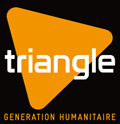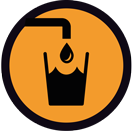TGH is organised around three technical departments covering its three main areas of expertise: Water, Sanitation and Hygiene, Food Security and Livelihood, and Education and Protection.
These units bring together qualified professionals (permanent experts or ad hoc consultants), who go to the field, providing direct support to the staff in charge of programme monitoring, and ensuring the quality of the activities carried out.
Using a global and multisectoral approach constitutive of TGH’s DNA, the technical departments favour integrated programmes - whether they are in a context of emergency, rehabilitation or development.
For each of its interventions, TGH takes into account local strategies and knowledges, the economic situation of households, and the socio-economic and cultural organisation distinct to the intervention area.



